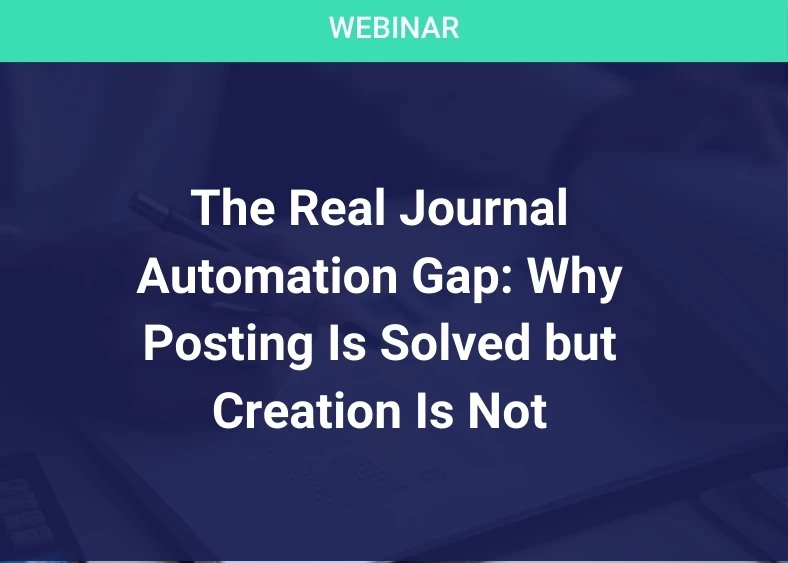James Bellini: Historian of the Future
Add bookmarkDr James Bellini gave the first plenary presentation at the 8th Annual Shared Services Week in Sitges, near Barcelona, on May 19th 2008. SSON's Jamie Liddell met the man himself.
As far as job titles go, ‘Historian of the Future’ is an absolutely doozy. However, as one of the leading practitioners of this fascinating trade, Dr James Bellini, can testify, the description can lead to a few misunderstandings: he is most definitely not, for instance, a magician.
"Let me be clear: I don’t have a cloak, a pointy hat and a magic wand," Bellini jokes – and he absolutely can’t tell you who’s going to win the 3.30 at Ascot. What he can do, however, is draw upon a career spanning decades of research and analysis, networking and award-winning creative endeavours to produce assessments of the likely state of the future which are as informed, and as entertaining, as any you’ll encounter.
When SSON meets Bellini, the good doctor – whose PhD "in military stuff" came from the London School of Economics – has just finished presenting to the 8th Annual Shared Services Week in Sitges, near Barcelona. His talk – the first plenary of the event - has ranged from early corporate history, via demographic change in modern Europe, through ‘Gutenberg 2.0’, to the rise of a new wave of consumers and the hiring challenges posed by the emergence of ‘Generation C’– and he’s scattered some pretty brain-bending statistics along the way.
For example, those of us in the audience now know that by 2040, if current trends are maintained, Italy will have 20 million fewer inhabitants; that "in 1965 there were 10,000 people for every computer, but by 2015 there will be 10,000 connected devices for every person"; that "over 50 per cent of people on the planet have never made a phone call"; that by 2020 Japan will be the oldest society in the developed world, and the USA will be the youngest.
It’s from a vast archive of such data, analysed through methods many years in the perfecting, that Bellini is able to create the "works of informed imagination" that make up his futurological output. Facts and figures, he says, are the currency of futurology and he declares that, magpie-like, he "will steal anything without remorse" which will contribute to his understanding of the myriad forces shaping the times to come.
This understanding has developed over the course of a distinguished and varied career which has seen Bellini finding success as an academic, a think-tank analyst, a reporter and TV presenter, an author, a narrator and, of course, a public speaker. If, however, this suggests chameleonic professional tendencies to accompany his corvine approach to data, Bellini’s wry grin, penetrating stare and uncompromising wit mark him out as resolutely human – as does his unwillingness to pander to social niceties: his latest book, tackling corporate deceit and the pervasiveness of misrepresentation in the business world, is appropriately titled The Bullshit Factor.
Bellini moved from university (St John’s College, Cambridge) into advertising, among other roles – but it was in Paris as the first British member of the highly regarded Hudson Institute (co-founded by Bellini’s early mentor, nuclear strategist Herman Kahn) where he won his spurs, and plaudits, with a series of predictions for major European economies, starting with France. He and his colleagues were a long way ahead of the curve in foreseeing the French economic revival of the 1970s and ‘80s, and their success did not go unnoticed; brought in by the BBC as a consultant on a similar predictive piece about the British economy, Bellini ended up fronting the program as lead reporter. Perhaps unpredictably - even for this most promising of seers - television, and a modicum of fame, had come knocking.
Although he discusses his successes with disarming humility, Bellini’s career in television left him much to crow about: seven years as a studio presenter with Sky News and Financial Times Television; stints presenting Panorama, Newsnight and The Money Programme; and a host of awards including the Prince Rainier II Prize at the Monte Carlo International TV festival and a special award given by the United Nations for his work on the epic documentary series The Nuclear Age – as well as rather less glittering roles such as presenting a TV version of Cluedo. Meanwhile he continued to predict, to analyse - and to publish, with a series of well-received tomes reaching the shelves from the 1980s onwards.
By now Bellini had established a reputation as one of the most perceptive and intuitive pundits on the current affairs circuit, and the step to public speaking to compliment his flourishing literary career was a logical one. His natural flair for business (he has served in executive positions for numerous companies) and for communications, combined with his specific spheres of interest, mean that - although he’s just as happy to present to the likes of Greenpeace "for a cup of tea"- his natural constituency consists of relatively high-powered businessfolk with a vested interest in understanding the foundations of the future (exactly the kind of people attending Shared Services Week, in fact).
And some future it’ll be. Bellini paints a fascinating picture of societies, businesses and economies on the brink of truly fundamental change; while he maintains that in general "nothing is ever really new – it might be different, but it’s not new", at the same time he posits developments which, in terms of the way organisations are structured and run, are as new as anything which has preceded them since the Stone Age.
"Shared services is not the sexiest area of management, but it’s one of the most important. It is about creating things which haven’t been seen before in business history: internally profit-driven services. This is not, however, truly revolutionary: yet in the next 10-15 years I do see a revolution, a period comparable with the beginning of corporate history," he says. "We’ll see as much change [in organisational structure] in the next 15 years as we saw in the last 5,000."
A major facilitator for this restructuring is, of course, the globalising information revolution, which is occurring at a mind-boggling rate.
"The pace of change is becoming a lot more compressed… Moore’s Law is probably already out of date. We have to generate new words to deal with the rate at which information is growing," he says, citing as an example the rise of the "exabyte" – one billion billion bytes or, in more antique terms, one trillion big books full of data.
The implications for business of this staggering acceleration of development are, of course, manifold; but Bellini sees one of the most crucial impacts taking place in the field of recruitment and HR, and beyond that in the way business itself is conducted on a personal level.
"The people you employ in future will be very different from those you’ve employed in the past," he cautions. "Your future talent comes from what some people call Generation Y but I prefer to call Generation C" - the connected, communicating, completely digital creator-generators currently en route to adulthood.
"They are digital natives, very different individuals, living, educated and working in digital spaces. Sharing is instinctive among them… It’s not about being selfish but about cooperating in effective, efficient ways."
Bellini believes that the arrival of this generation will force employers to reassess age-old practices such as recruitment, interview techniques and training. After all, this is a generation with a decreasing attention span but a marked increase in the ability to multitask and shift from one task to another very quickly; if a trainer begins to lose the attention of his or her trainees, Bellini asks, who will be to blame – the trainees, who have developed in a fast-changing, rapid-fire digital environment, or the trainer, who has not? The answer is implicit in the question, and Bellini warns that companies expecting their new recruits to bend to an established, ‘old’ modus operandi will find themselves left behind: "the talent war will become more acute," he says, and it’s a war no company will be able to afford to lose.
The nature of employment itself will also change, the doctor reckons. Long-term contracts in fixed locations will become increasingly obsolete; the future will be made up of task-based employment of "clusters" of employees coming together to address specific needs, offering complementary skills for comparatively short, intense bursts of productivity – often working at distance from homes around the world.
For older employees such a shift might represent a vast challenge and perhaps an assault on traditional comforts such as job security; for the digital natives of Generation C, however, such practices will be second nature – and Bellini uses the example of Hollywood film production, which has been from the off a task-based environment, as how businesses and entire industries can work on a different, and potentially formidable, model.
The future will also bring us a very different consumer class, Bellini promises. Societies are getting older, and the old are becoming more affluent: in the UK, for example, in this "New Age of consumers" over-50s already own over 80 per cent of the nation’s assets, and the country has reached a tipping point when there are more retirees than there are children. Meanwhile family sizes are decreasing, creating a growing deficit in the workforce of the future: we are approaching the "post-kids future", Bellini says somewhat ominously.
"This has huge consequences for everyone," he says. "Take R&D: the reason cars are the way they are, with four seats, is because the nuclear family model was the dominant one when car design was at its most dynamic. Four family members required four seats. Now the nuclear family is not the dominant model: what will the layout be of the car of the future? Or take cereal packets: they were sized for a nuclear family. Now that size is no longer appropriate."
Different needs require different provisions and Bellini urges today’s companies to plan properly for a very different breed of consumer. The older generation – which will live longer than any in human history – will have different high-value requirements which will need to be met; meanwhile, the younger generation will be comparatively less affluent but will have very different needs and will expect those needs to be met in very different ways. Marketing, design, sales: all will have to undergo their own revolutions.
"There is a conversation going on, a huge worldwide conversation. You will not control this conversation, though it will be about you and will impact upon you," he cautions. Of course, this lack of control might terrify many businesses and practitioners – especially those in shared services for whom maintaining the right level of control over processes is such a fundamental aspect of the job – but it also represents a unique opportunity.
If, as Bellini assures us, the next few years will see us having to "revisit the idea of how to think", such reengagement with processes and the reasons behind them – driven in no small way by the digital natives making up the next generation of employees – will surely lead to sweeping changes in almost every aspect of doing business. The cost and efficiency savings currently held up as world-class by leading shared service practitioners could pale into insignificance against the benefits – tangible and intangible – brought by new approaches to the very raison d’etre of business and the economy, and by the technological revolution whose ultimate consequences even this most esteemed of futurologists can only ponder from afar.
(Dr James Bellini's The Bullshit Factor is now available through Artesian Publishing; click here for more information, or see Dr Bellini's website.)





















